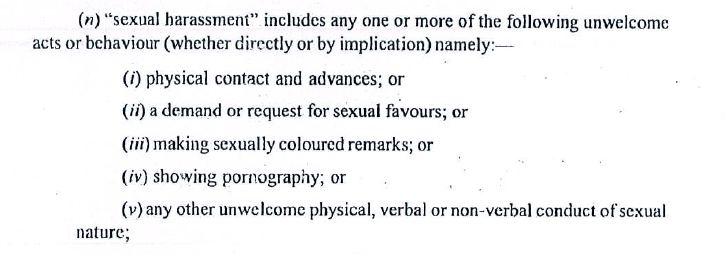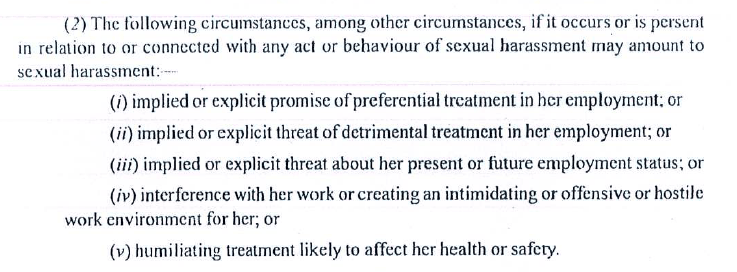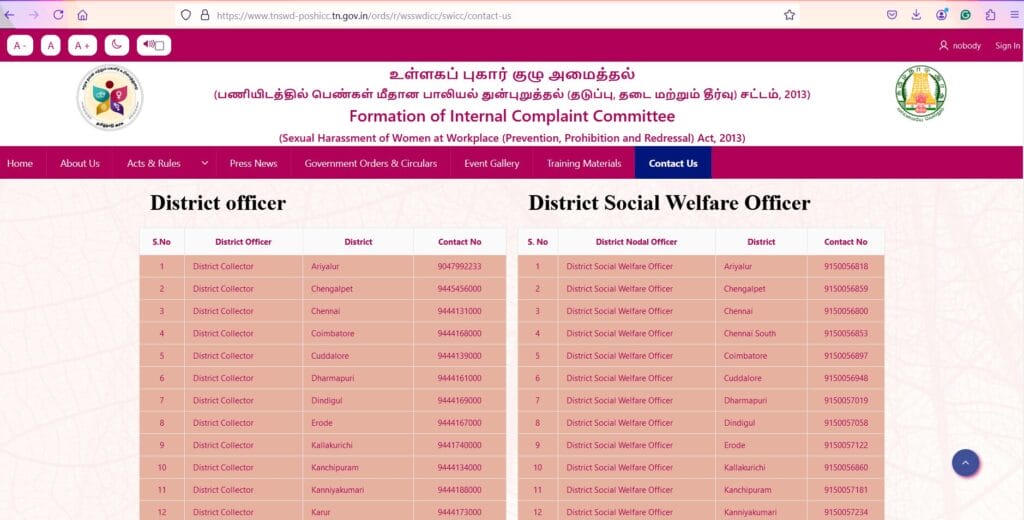A report by the three-member Justice Hema Committee, established by the Kerala government in 2017 to examine the issues faced by women in Malayalam cinema, was released on August 19th. The report has sparked discussions about the sexual harassment experienced by women not only in the film industry but also in various workplaces.
When the allegations of multiple instances of sexual harassment and abuse in Chennai’s famed Kalakshetra broke in 2023, we looked into the functioning of the Internal Complaints Committees (ICC) in Chennai’s educational institutions. The roles and responsibilities of ICC apply to all organisations that have 10 or more employees as per the Sexual Harassment of Women at Workplace Act 2013 (POSH Law).
“A few private organisations have implemented the POSH Law and ensured the proper functioning of ICCs. However, these are few and far between,” notes Jothilakshmi Sundaresan, an advocate at Madras High Court.
Women in the organised sector may have some protections but, those in the unorganised sector — such as domestic workers, construction workers, and temporary staff in commercial establishments — often face significant challenges in obtaining justice under the POSH Act if they experience sexual harassment. While provisions are legally available, few women know about the Local Complaints Committee (LCC) and its crucial role.

In Part 1 of a two-part series, we examine the provisions available for unorganised women workers, whom they should reach out to, and how they can file a complaint.
What constitutes sexual harassment in the workplace?
According to the POSH law, the following will be considered sexual harassment in any workplace:

“Often when the woman worker stands up for herself, the perpetrator (who is influential/politically connected) tends to create a hostile work environment for her and threatens her,” notes M Josephine Amala Valarmathi, state coordinator of National Domestic Workers Movement. According to POSH law, this too, will be counted as sexual harassment.

Whom should the survivor reach out to?
The primary challenge a survivor faces is not knowing whom to contact when experiencing workplace harassment. Women working in organisations with 10 or fewer employees should reach out to the LCC constituted at the district level.
“LCC plays a crucial role as it is not only meant to receive complaints from workplaces where there are 10 or fewer employees but also in other places where the ICC is not constituted if the aggrieved woman does not have confidence in the ICC or when the complaint is against the employer himself,” notes Shreela M, an advocate based in Chennai.
The Chennai LCC was reconstituted on May 29, 2023, and the below-mentioned office bearers would hold office for three years. The Special Tahsildars (who look into the implementation of the social security schemes) from the 15 Zones across the Greater Chennai Corporation, and the Regional Development Officers (RDOs) of Chennai North, Chennai South and Chennai Central regions have also been appointed as the Nodal officers.
| Designation | Name |
| President | Panchi Subramanian, FinTech Cyber Security Entrepreneur |
| Member | Sharmila Gunaraj, an advocate from the Madras High Court |
| Member | R Ratheesh Manikandan (male representative) |
| Member | Kasthuri, District Social Welfare Department |
| Member | M Haritha, District Social Welfare Department |
| Member | A Mangaiyarkarasi, District Social Welfare Department |
New website to combat workplace harassment
The State Social Welfare and Women Empowerment Department has launched an exclusive web portal that has information on rules, government orders and training materials needed for forming ICCs. Meanwhile, the contact details of district-level officials have also been made available on the web portal.

Read more: Chennai helplines for women suffering abuse, gender violence or mental health issues
How can the survivor file a complaint of sexual harassment at LCC?
According to the District Social Welfare & Women Empowerment Department (Chennai), the survivor can file the complaint by both online and offline mechanisms. They can file their complaint by sending a mail to the District Social Welfare Officer at chndswo.4568@gmail.com or to the District Collector at collrchn@nic.in. However, not many would be tech-savvy to send a complaint through mail. As of now, the only other provision is for the aggrieved woman to submit a physical copy of the petition to the LCC at the district collectorate.
The complaint must be filed within three months from the date of the incident. In the case of a series of incidents, it must be filed within three months from the date of the last incident. If circumstances prevented the survivor from filing a written complaint within this period, the Local Complaints Committee (LCC) may extend the deadline by a maximum of three months, provided they are satisfied with the reasons for the delay.
On account of physical, or mental incapacity or death, the LCC shall allow the legal heir to file the complaint on behalf of the victim.
If the survivor cannot make the complaint in writing, the LCC shall give her reasonable assistance to file the complaint in writing.
Read more: To fight sexual harassment of women, it is important to continue to talk: Chinmayi Sripada
How does LCC process the sexual harassment complaint?
The LCC will initiate an investigation into the case. If a prima facie case is established, the LCC will forward the complaint to the police for registering a case under the relevant Indian Penal Codes within seven days. During the inquiry, both parties will be given equal opportunities to be heard and the findings will be made available to both for representation against the findings.
The recommendations and actions taken by the LCC may vary on a case-to-case basis. However, the employer should act on the recommendations within 60 days and send a report to the LCC.
The inquiry should be completed within 90 days of filing the complaint. Once the inquiry is completed, the LCC shall send the report on the case within 10 days to the District Officer.
The second part of this two-part series will examine how the LCC works on the ground and whether it has been effective in helping vulnerable groups of women.